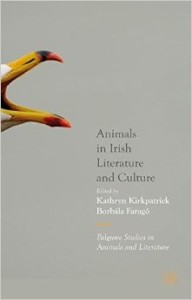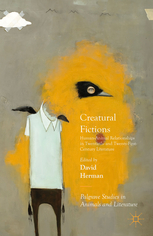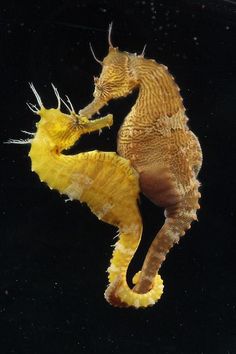The conversion of animal bodies into flesh for human consumption is a practice where relations of power between humans and nonhuman animals are reproduced in exemplary form. From the decline of (so-called) traditional animal husbandry to the emergence of intensive agriculture and, more recently, the biotechnological innovation of in vitro meat, the last hundred years have seen dramatic changes in processes of meat production, as well as equally significant shifts in associated patterns of human-animal relations. Over the same period, meat consumption has risen substantially and incited the emergence of new forms of political subjectivity, from nationalist agitation against ritual slaughter to the more radical rejection of meat production in abolitionist veganism.
Distinct disciplinary responses to meat production and consumption have occurred across the humanities and social sciences in areas including (but not limited to) food studies, gender studies, postcolonial studies, ecocriticism, and (critical) animal studies. Theoretical engagements with these upheavals have ranged from viewing meat production as a site of affective encounter and irresolvably complex ethical entanglements, to framing industrialised slaughter as a privileged practice in what Dinesh Wadiwel has recently diagnosed as a biopolitical ‘war against animals’. This edited collection solicits essays which engage with these transformations in the meanings and material practices of meat production and consumption in literature and theory since 1900. We seek contributions from scholars working on representations of meat in any area of literary studies (broadly conceived) but are particularly interested in essays that challenge dominant narratives of meat-eating and conceptions of animals as resources.
Suggested topics include, but are by no means limited to the following:
- Meat and nationalism/racism
- Meat and colonialism/postcolonialism
- The globalisation of meat
- Future meat (in vitro etc.)
- Meat and ‘the natural’
- Meat eating and hospitality/sociality/ritual
- Vegan theory
- Meat and nostalgia
- Unconventional meats: bushmeat, insects etc.
- Cannibalism (human and non-human)
- Predation/nonhuman meat-eating
- Food and abjection
- The edible and the inedible
- Sacrifice
- Meat eating and extinction
- Flesh/protein/masculinities
- Revisiting the sexual politics of meat
- Meat and ‘disordered’ eating
- Meat production and climate change
- Dietary orientations towards meat: veganism, pescatarianism, paleo diets
- Meat substitutes/simulated meats
- Carnophallogocentrism
- Hunting/fishing
- Animal escapees
- Spaces of meat production (slaughterhouses, farms etc.)
- Meat and zoonosis
The volume will be submitted to Palgrave Studies in Animals and Literature:
http://www.palgrave.com/gp/series/14649
Please send abstracts of 300 words along with a brief biographical statement to Seán McCorry (s.mccorry@sheffield.ac.uk) and John Miller (john.miller@sheffield.ac.uk) by Monday, January 23 rd 2017. Essays of approximately 7000 words in length will be commissioned for delivery in September 2017.
Other books from the same series:



